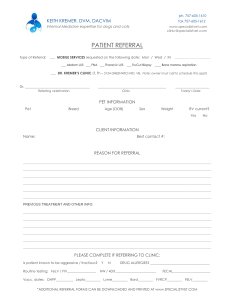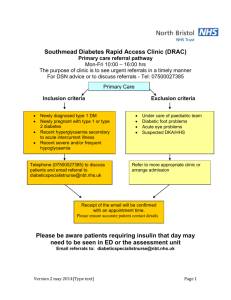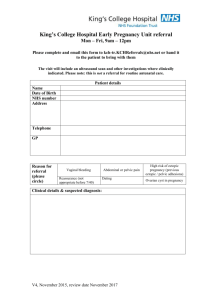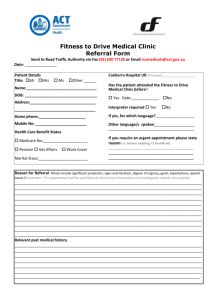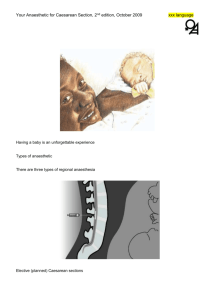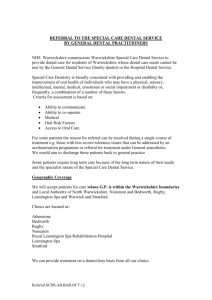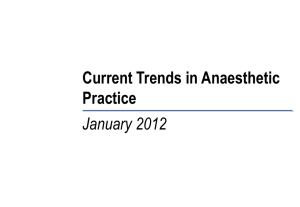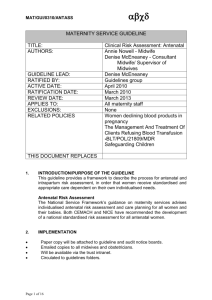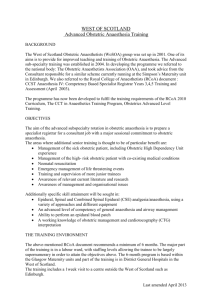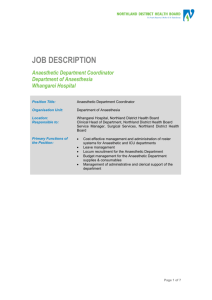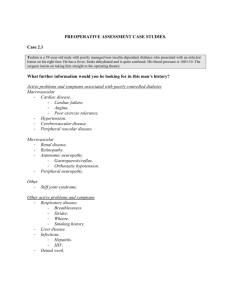Airedale Hospital
advertisement
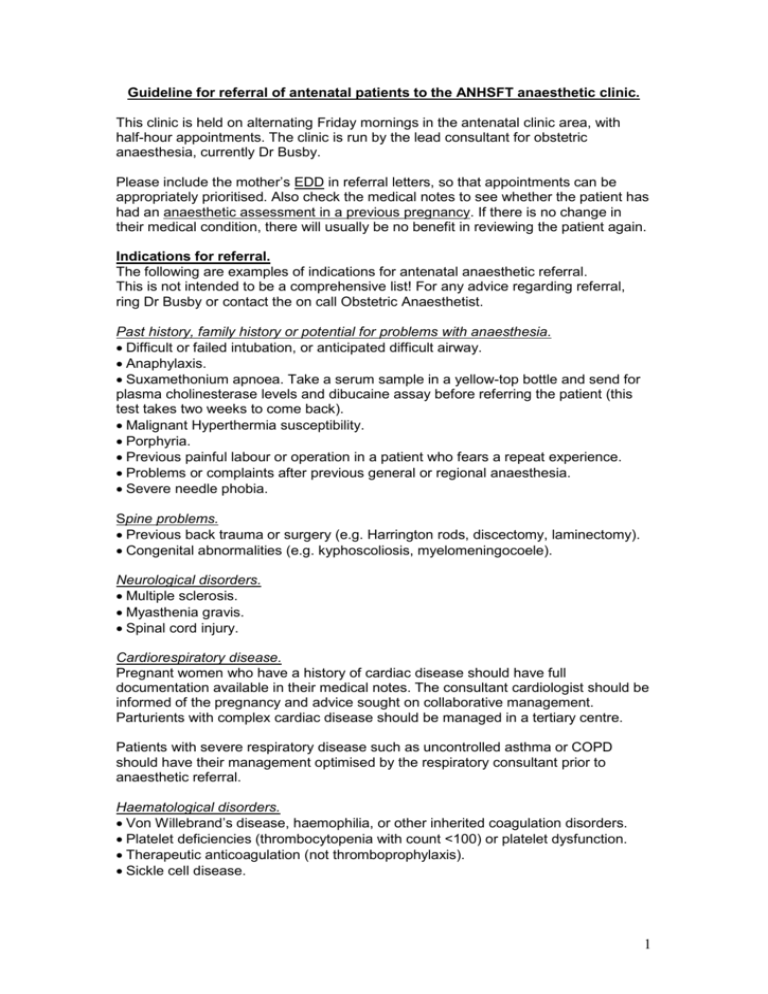
Guideline for referral of antenatal patients to the ANHSFT anaesthetic clinic. This clinic is held on alternating Friday mornings in the antenatal clinic area, with half-hour appointments. The clinic is run by the lead consultant for obstetric anaesthesia, currently Dr Busby. Please include the mother’s EDD in referral letters, so that appointments can be appropriately prioritised. Also check the medical notes to see whether the patient has had an anaesthetic assessment in a previous pregnancy. If there is no change in their medical condition, there will usually be no benefit in reviewing the patient again. Indications for referral. The following are examples of indications for antenatal anaesthetic referral. This is not intended to be a comprehensive list! For any advice regarding referral, ring Dr Busby or contact the on call Obstetric Anaesthetist. Past history, family history or potential for problems with anaesthesia. Difficult or failed intubation, or anticipated difficult airway. Anaphylaxis. Suxamethonium apnoea. Take a serum sample in a yellow-top bottle and send for plasma cholinesterase levels and dibucaine assay before referring the patient (this test takes two weeks to come back). Malignant Hyperthermia susceptibility. Porphyria. Previous painful labour or operation in a patient who fears a repeat experience. Problems or complaints after previous general or regional anaesthesia. Severe needle phobia. Spine problems. Previous back trauma or surgery (e.g. Harrington rods, discectomy, laminectomy). Congenital abnormalities (e.g. kyphoscoliosis, myelomeningocoele). Neurological disorders. Multiple sclerosis. Myasthenia gravis. Spinal cord injury. Cardiorespiratory disease. Pregnant women who have a history of cardiac disease should have full documentation available in their medical notes. The consultant cardiologist should be informed of the pregnancy and advice sought on collaborative management. Parturients with complex cardiac disease should be managed in a tertiary centre. Patients with severe respiratory disease such as uncontrolled asthma or COPD should have their management optimised by the respiratory consultant prior to anaesthetic referral. Haematological disorders. Von Willebrand’s disease, haemophilia, or other inherited coagulation disorders. Platelet deficiencies (thrombocytopenia with count <100) or platelet dysfunction. Therapeutic anticoagulation (not thromboprophylaxis). Sickle cell disease. 1 Other. Systemic disease (e.g. systemic lupus erythematosus, rheumatoid arthritis, ankylosing spondylitis). Chronic renal failure/ renal transplant. Obesity (BMI > 40 kg m-2). Refusal of blood products (e.g. Jehovah’s Witnesses). ASA 3 or greater for any reason. 2
